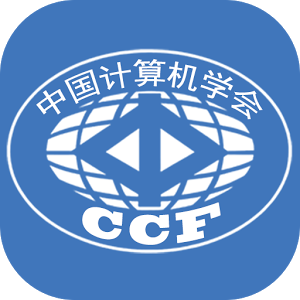如何让文章同时被CCF B类会议和期刊收录?HiPEAC告诉你答案
好吧,有点标题党的嫌疑,不过HiPEAC系列会议确实可以让一篇文章同时体现在CCF B类期刊(ACM TACO)和CCF B类会议(HiPEAC 2019)上。下面就针对HiPEAC 2019以及该会议创新的投稿方式进行介绍。
(本期的会议自荐由HiPEAC 2019的 Publicity Chair - Fei Lei 提供)
Overview
The HiPEAC conference is the premier European forum for experts in computer architecture, programming models, compilers and operating systems for embedded and general-purpose systems.
The 14th HiPEAC conference will take place in Valencia, Spain from Monday 21 January to Wednesday 23 January, 2019. Associated workshops, tutorials, special sessions, several large poster sessions and an industrial exhibition will run in parallel with the conference. The three-day event attracts over 500 delegates each year.
Publications
HiPEAC has been pioneering the journal-first publication model. Journal-first means that the manuscript selection process for the conference is outsourced to a journal (ACM TACO). Manuscripts can be submitted to the journal at any time throughout the year as regular journal submissions. For all manuscripts submitted before June 1, ACM TACO guarantees that the final decision (including two rounds of revision) will be communicated before November 15. All authors of original work papers accepted in the journal between November 15, 2017 and November 15, 2018 will get an invitation to present their work during the paper track of the HiPEAC conference. There are no conference proceedings published.
小编备注:这是HiPEAC最大的特点之一。简而言之,文章将会在ACM TACO上发表,并且会邀请文章作者参加HiPEAC 2019,并在会议的paper track上做学术报告。当然,文章将会同时在CCF B类期刊和B类会议收录,但是因为HiPEAC 2019不会有会议论文集,所以不存在一稿多投的风险。
期刊简介 ACM TACO
ACM Transactions on Architecture and Code Optimization
期刊检索 :SCI
影响因子:1.636
CCF分类:B类
Important Dates
全文截稿: 2018-06-01
开会时间: 2019-01-21
Topics
Topics of interest include, but are not limited to:
• Processor, memory, interconnect, and storage architectures
• Parallel, multi-core and heterogeneous systems
• Interconnection networks
• Architectural support for programming productivity
• Power, performance and implementation efficient designs
• Reliability and real-time support in processors, compilers and run-time systems
• Application-specific processors, accelerators and reconfigurable processors
• Architecture and programming environments for GPU-based computing
• Architectural simulation and methodology
• Architectural and run-time support for programming languages
• Programming models, frameworks and environments for exploiting parallelism
• Compiler techniques
• Feedback-directed optimization
• Program characterization and analysis techniques
• Dynamic compilation, adaptive execution, and continuous profiling/optimization
• Binary translation/optimization
• Code size/memory footprint optimizations
• Architectures for emerging technologies such as neuromorphic, photonics, quantum, etc.



